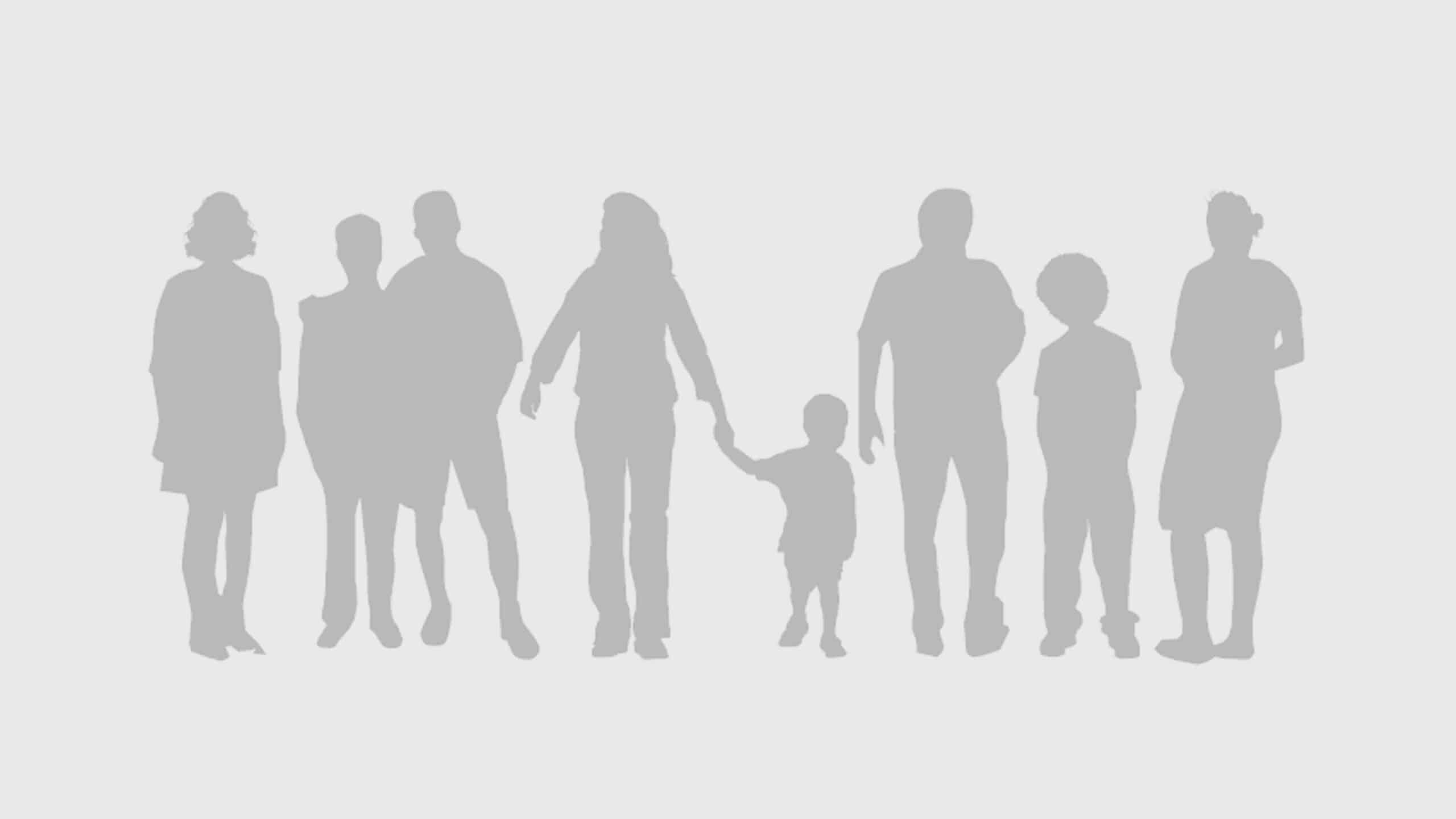"Prejudices against people with #HIV affect my life"
This statement applies to half of the people with HIV who were surveyed in the "positive voices 2.0" study. Today, we presented the results of the participatory research project. It is clear that the lives and everyday lives of people with HIV are much more restricted by experiences of discrimination than by the health aspects of the infection. Conclusion: A good life with HIV is medically possible - the way society deals with it is lagging behind.
![]() Further information, the results and recommendations for action based on them can be found at
Further information, the results and recommendations for action based on them can be found at
www.positive-stimmen.de
![]() You can find the press release at https://www.aidshilfe.de/…/leben-hiv-heute-vorurteile…
You can find the press release at https://www.aidshilfe.de/…/leben-hiv-heute-vorurteile…
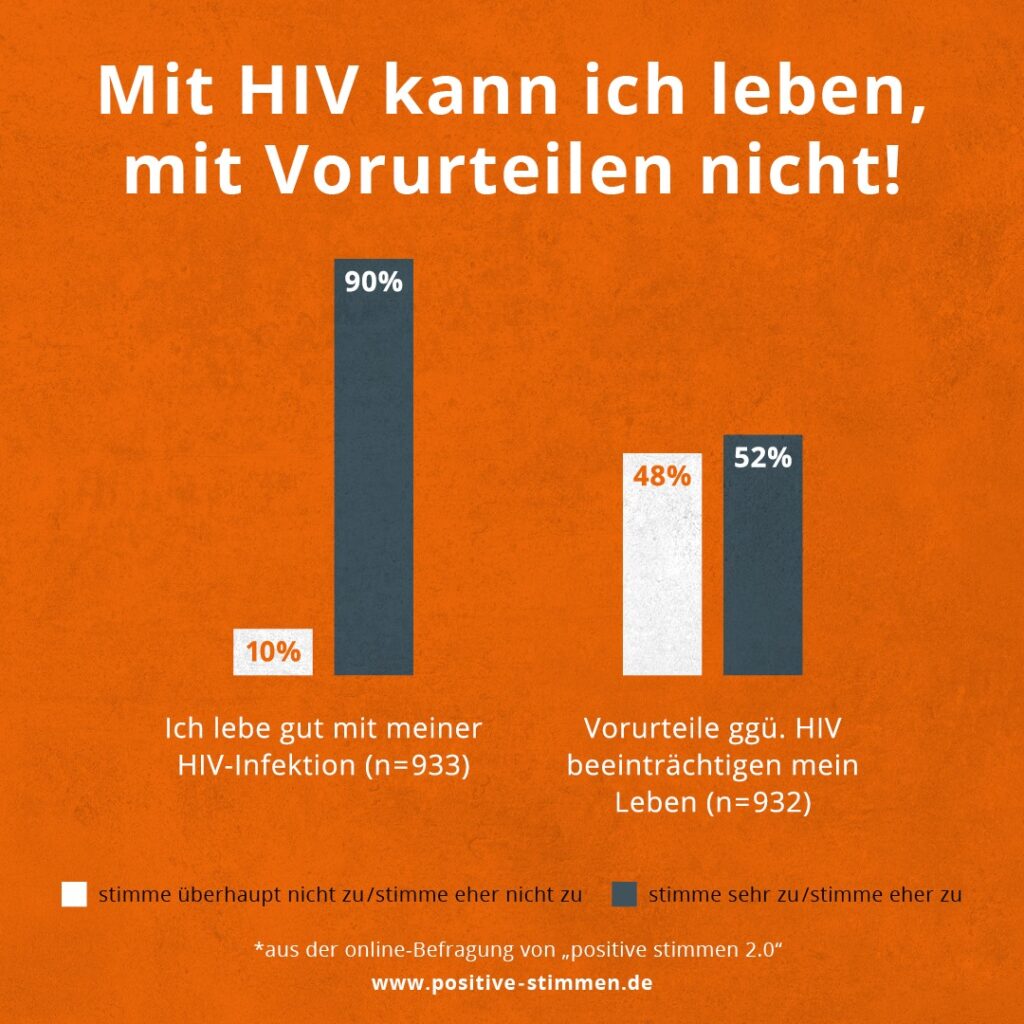
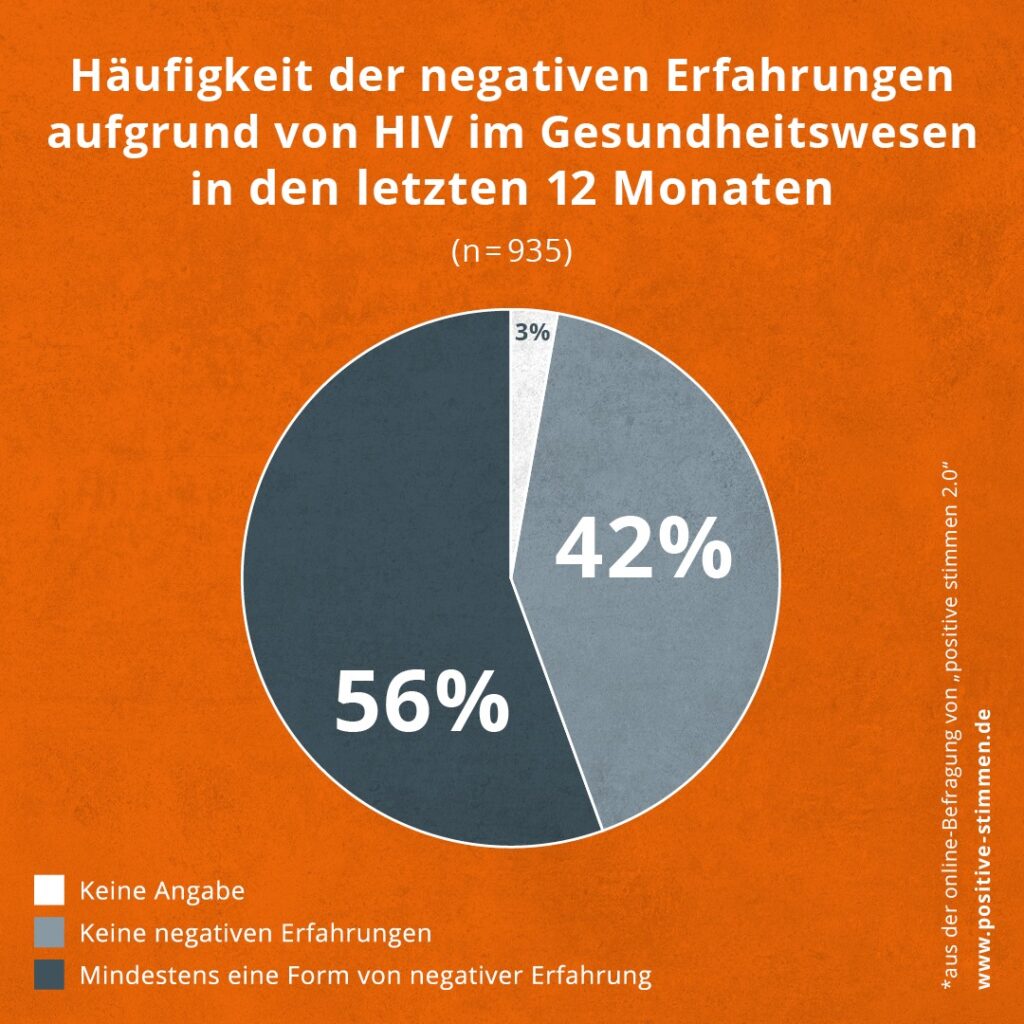
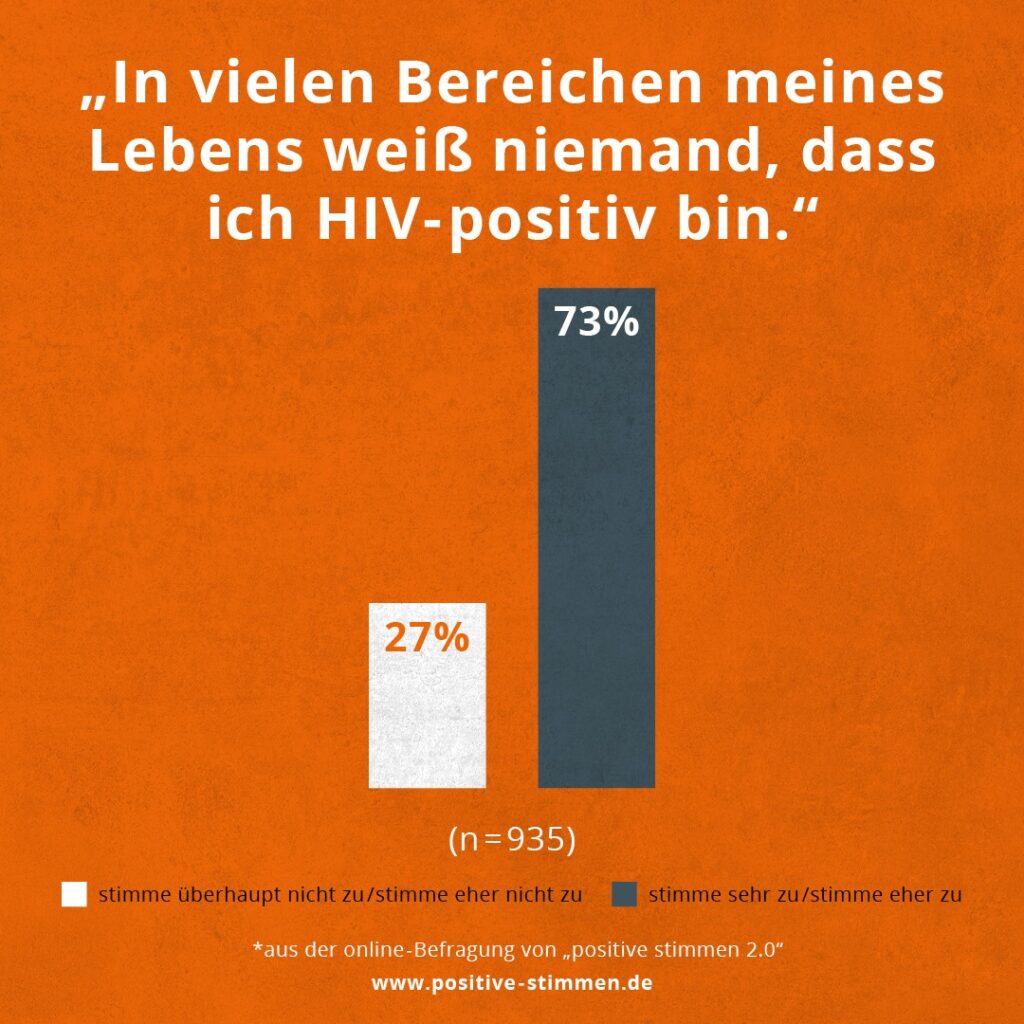
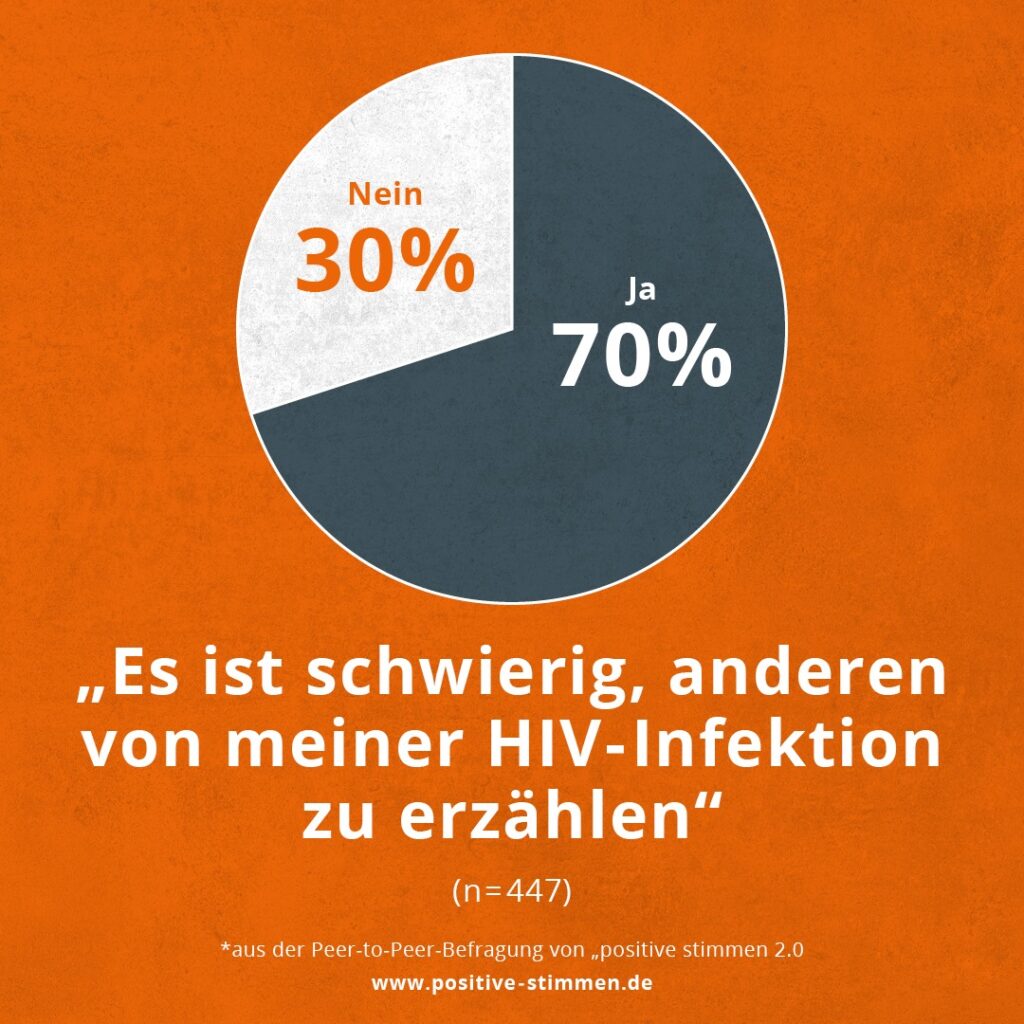
People with HIV are often affected by stigmatisation and discrimination.
For them, the perceived and internalised stigmatisation and the discrimination they experience can have a significant impact on their quality of life and health - the results of "positive voices 2.0" underline this.
Stigmatisation and discrimination
At the same time, stigmatisation is the biggest obstacle to HIV prevention. This is because (feared) marginalisation and stigma-based disease theories (e.g. assumptions about so-called risk groups
and transmission routes) have an impact on the willingness to be tested for HIV and, on the other hand, HIV testing is not recommended for people who are not considered to be at risk - especially women.
over the age of 40 - are not actively offered. Stigmatisation and discrimination therefore contribute to the fact that even today in Germany around 1/3 of HIV infections are only diagnosed at a late stage and people have to accept significant health disadvantages as a result, as they cannot benefit from timely HIV treatment.
Intersectional aspects
Intersectional aspects also play a major role in relation to HIV. From the very beginning, HIV has been made into an infection of the "others". For example, HIV - regardless of statistical facts - is primarily attributed to groups that were already stigmatised even before the start of the HIV pandemic, such as "promiscuous" gay men, sex workers, drug users and black people. In addition, many people with HIV experience stigmatisation.
not only because of their HIV infection, but also because of other stigmatisation characteristics, e.g. as a gay man, as a trans* person, as a Black or person of colour, as a woman, as a drug user, as a woman, as a woman or as a woman of colour.
Person or sex worker.
These stigmas not only overlap, leading to "more" stigma, but also to "more" stigma.
tisation and discrimination, but they are interwoven and lead to specific experiences of stigmatisation and disadvantage. For example, the life of an HIV-positive young gay cis man who comes from a middle-class background and has a university degree may be less different from that of an HIV-positive gay man who comes from a middle-class background and has a university degree.
HIV-negative man, while an HIV-positive Black woman without a residence permit and health insurance is likely to have difficulties obtaining vital medication and caring for her health.
